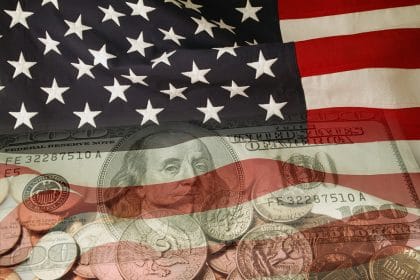On Wednesday, President Trump’s Working Group on Financial Markets published a report regarding stablecoins retail payments perception amongst the public.
A certain leading US financial regulators group has recently issued a new statement regarding stablecoins. The group recommended that the same regulation used in other financial systems ought to be applicable to stablecoins. This decision was based on the fact that traders usually rely on stablecoins to purchase cryptocurrencies like Bitcoin used for quick transactions execution, due to their low volatility.
Some prominent people in the working group are Securities and Exchange Commission (SEC) Chair Jay Clayton, Federal Reserve Chair Jerome Powell, Commodity Futures Trading Commission Chair Heath Tarbert and Treasury Secretary Steven Mnuchin. President Ronald Reagan formed this group in the late 1980s to oversee and nurture financial markets in the US.
Report Addresses Financial Risks Involved in Stablecoin Transactions
According to the group’s view, stablecoins should pass appropriate oversight and money-laundering requirements to function in facilitating various transactions.
“Where a stablecoin that is primarily used for retail payments is adopted at a significant scale in the United States, the associated risks may require additional safeguards. We encourage relevant participants engaged in the design of such stablecoin arrangements and their functions, operations, transactions, and risk management to align with key principles,” the report emphasized.
Coordination between US regulators themselves, as well as with international partners, was also highlighted in the document.
Although the group did not provide revolutionary opinions, it did a good job in laying down principles that address financial stability risks in the industry — where stablecoin issuers follow the set financial law. However, the regulators failed to clarify whether stablecoins are necessarily commodities or currencies — which would have made them subject to regulations that are less aggressive than those applied on derivatives or securities.
Instead, they went ahead to state:
“Depending on its design and other factors, a stablecoin may constitute a security, commodity, or derivative subject to the U.S. federal securities, commodity, and/or derivatives laws.”
Justin Muzinich stated that the statement aims not only at preserving financial stability and national security but also at promoting innovation that are importantly beneficial. Actually, innovation has been a frequent term among regulators dealing with new technologies that involve changing the function of money.
Views regarding the Regulation of Stablecoins
While appreciating the “productive balance” the group has set, Brian Brooks, acting Comptroller of the Currency, also today expressed the following in a statement:
“The group reached a productive balance recognizing the valuable and important role stablecoins are playing in our national and global economies and the need to ensure such financial tools do not contribute to crime or national insecurity.”
PWG suggested approach towards stablecoins seems to be softer than some other views that came earlier. For instance, in the beginning of this month, Congresswoman Rashida Tlaib laid before the U.S. House of Representatives the STABLE (Stablecoin Tethering and Bank Licensing Enforcement) Act. The legislation sparked outrage among the crypto community as it looked to make fiat-pegged stablecoin operators to follow registration requirements and rules similar to those of banks.
Last Friday, Financial Crimes Enforcement Network (FinCEN) proposed crypto exchanges to verify the customers’ identity, in cases where transaction exceed $3,000 when a counterparty uses an unhosted wallets. The treasury arm is waiting for stakeholders to give their comments about the Travel Rule thresholds proposals that restrict US-registered crypto exchanges in self-hosted wallets dealings. Although a couple of lawmakers have already expressed their opposition, treasure still has enormous rulemaking power in this domain due to the lack of formal law.
next